 Amid the medal-bedecked pageantry of the Beijing Olympics, it’s easy to forget that China holds another, less savory distinction: It maintains one of the more repressive regimes of religious persecution. As the recent travails of one missionary group demonstrate, even with the world watching, the host country remains as intolerant of religious freedom as ever. On Sunday, August 17, members of the Sheridan, Wyoming, mission group Vision Beyond Borders arrived at Kunming Airport in Yunnan province with 315 Bibles they planned to give out to Chinese Christians. (Similar Bibles can sell on the black market in China for the equivalent of six months' salary.) The group’s leader, Pat Klein, told reporters that customs officials seized the Bibles even though they were printed according to strict Chinese requirements."The authorities at the airport kept asking us to leave and producing pieces of paper which they said proved that bringing more than one Bible per person into the country was illegal," Klein said. "But it all looked bogus to us."So Klein and his two traveling companions staged a sit-in at the airport in protest. They were videotaped and awakened during the night. The next day, Klein was told their Bibles would be returned to them when they left the country, but the group didn’t believe these assurances and abandoned their protest empty handed.Ironically, last year China denounced “false rumors” that Bibles would be banned from the Olympic Games, insisting that 10,000 Bibles would be distributed in the Olympic Village. However, there are no subsequent reports confirming they went through with their promise.And so, the airport standoff between American Christians and Chinese officials has ended, having lasted only 30 hours. Chinese Christians, on the other hand, struggle day in and day out to observe their faith under tyrannical Communist rule. Unlike their American brethren, persecuted Chinese Christians don’t have a free nation they can return to.With this eposide, therefore, the Beijing Olympics have helped cast international focus on a serious and much ignored issue: the plight of Chinese Christians and other religious believers in the People's Republic. Indeed, not even the presence of George W. Bush prevented the Communists from arresting well known underground church pastor Hua Huiqi on his way to a church service with the President on August 10. Hua was beaten unconscious last year for trying to assist residents whose property had been seized to make way for Olympic construction, and then served six months in jail.The President took the opportunity during the service to call for greater religious freedom in the Communist country. (Ironically, at virtually the same moment, three American Christian activists were being arrested in Tiananmen Square, during a protest against the Chinese policy of forced abortion in Tiananmen Square. The group carried a banner reading “Jesus Christ is King” in English and Mandarin.)
Amid the medal-bedecked pageantry of the Beijing Olympics, it’s easy to forget that China holds another, less savory distinction: It maintains one of the more repressive regimes of religious persecution. As the recent travails of one missionary group demonstrate, even with the world watching, the host country remains as intolerant of religious freedom as ever. On Sunday, August 17, members of the Sheridan, Wyoming, mission group Vision Beyond Borders arrived at Kunming Airport in Yunnan province with 315 Bibles they planned to give out to Chinese Christians. (Similar Bibles can sell on the black market in China for the equivalent of six months' salary.) The group’s leader, Pat Klein, told reporters that customs officials seized the Bibles even though they were printed according to strict Chinese requirements."The authorities at the airport kept asking us to leave and producing pieces of paper which they said proved that bringing more than one Bible per person into the country was illegal," Klein said. "But it all looked bogus to us."So Klein and his two traveling companions staged a sit-in at the airport in protest. They were videotaped and awakened during the night. The next day, Klein was told their Bibles would be returned to them when they left the country, but the group didn’t believe these assurances and abandoned their protest empty handed.Ironically, last year China denounced “false rumors” that Bibles would be banned from the Olympic Games, insisting that 10,000 Bibles would be distributed in the Olympic Village. However, there are no subsequent reports confirming they went through with their promise.And so, the airport standoff between American Christians and Chinese officials has ended, having lasted only 30 hours. Chinese Christians, on the other hand, struggle day in and day out to observe their faith under tyrannical Communist rule. Unlike their American brethren, persecuted Chinese Christians don’t have a free nation they can return to.With this eposide, therefore, the Beijing Olympics have helped cast international focus on a serious and much ignored issue: the plight of Chinese Christians and other religious believers in the People's Republic. Indeed, not even the presence of George W. Bush prevented the Communists from arresting well known underground church pastor Hua Huiqi on his way to a church service with the President on August 10. Hua was beaten unconscious last year for trying to assist residents whose property had been seized to make way for Olympic construction, and then served six months in jail.The President took the opportunity during the service to call for greater religious freedom in the Communist country. (Ironically, at virtually the same moment, three American Christian activists were being arrested in Tiananmen Square, during a protest against the Chinese policy of forced abortion in Tiananmen Square. The group carried a banner reading “Jesus Christ is King” in English and Mandarin.)The Beijing church Bush attended, the Three-Self Patriotic Movement, is one of the three officially sanctioned Christian churches in China. However, millions of Chinese attend underground “house churches” like Pastor Hua’s instead, at great risk to themselves.A 2006 United Nations investigation found widespread government torture in China, with particular abuse inflicted on house church worshipers as well as Tibetan Buddhists, Uighur Muslims and members of the Falun Gong.According to Ashley Dingler of the East Asian for International Christian Concern, the months leading up to the Beijing Olympics witnessed a marked increase in Communist crackdowns on believers:
"We've seen a huge increase in the numbers of house churches that are being raided, especially the leaders of the house churches are being taken into custody. In early March, there were 70 [leaders] taken at one time."
A report issued by Dingler’s group explains that many cheap consumer goods for sale in the U.S. are produced by slave labor, by workers whose only crime is their faith. Ironically, one of the products manufactured this way are decorative Christmas lights:
"Their fingers bleed, but they press on, for if they don't make the day's quota – 5,000 bulbs – they are beaten. Inmates like these often make the Christmas lights that decorate the trees of Christian believers around the world. Their crime? Preaching the Gospel of Jesus Christ. House church pastors are sent to work camps after their arrest, and in some respects, these are the lucky ones, for they survived the standard interrogations that greet most Christian leaders after they are detained; several are killed or 'disappear,' never to be seen or heard from again.”
This persecution is nothing new, of course. Religious faith of any kind is anathema to China’s Communist Party, which began persecuting the nation’s faithful even before taking power in 1949. Over the years, this persecution has waxed and waned depending upon who was in charge of the country and what kind of face they wanted to present to the world. Relative freedom in the 1970s was followed by thousands of arrests, which continue to this day.However, Christian groups in the West insist that, as in ancient Roman times, their faith is actually thriving under state persecution.A recent survey on religion concluded that the number of Chinese who describe themselves as religious is three times more than the official estimate. The figures are astonishing: an East China Normal University study estimates that 31.4 percent of Chinese – approximately 300 million -- are religious. “About 200 million are Buddhists, Taoists or worshippers of legendary figures such as the Dragon King and God of Fortune, and 40 million are Christian,” according to 2006 Pew Global Attitudes Project.This makes the news coming out of China both heartening and depressing. Not surprisingly, Rev. Rick Warren raised the topic during his “Saddleback” conversations with both Presidential candidates earlier this week.Asked what the U.S. should do to end religious persecution in China, Iraq and other nations, Senator Barak Obama replied that, “one thing that I think is very important for us to do on all these issues is to lead by example. That’s why I think it’s so important for us to have religious tolerance here in the United States. That’s why it’s so important for us, when we are criticizing other countries about rule of law, to make sure that we’re abiding by rule of law and habeas corpus and we’re not engaging in torture because that gives us a moral standing to talk about these other issues.”Responding to the same question, Senator John McCain asserted that he would use the “presidential bully pulpit” to pressure oppressive countries to halt religious persecution.McCain evoked the example of President Ronald Reagan:
"He said to those people who were then captive nations: The day will come when you will know freedom and democracy and the fundamental rights of man. Our Judeo-Christian principles dictate that we do what we can to help people who are oppressed throughout the world. And I'd like to tell you that I still think that even in the worst places in the world today and the darkest corners, little countries like Belarus, they still harbor this hope and dream someday to be like us."
Perhaps such words will inspire China’s millions of believers to hope and pray for a more peaceful future. Assuming, that is, they are allowed to read and hear them.
--------------------------
A blogger since 2000, Kathy Shaidle runs FiveFeetOfFury.com. Her new e-book Acoustic Ladyland has been called a "must read" by Mark Steyn.
As in the days of Noah...
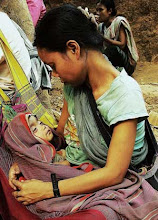
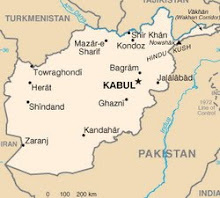
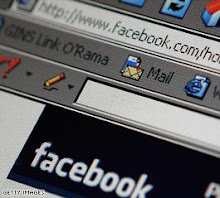

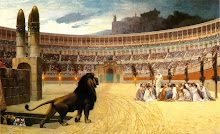
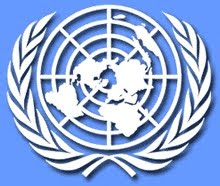




















.bmp)
No comments:
Post a Comment